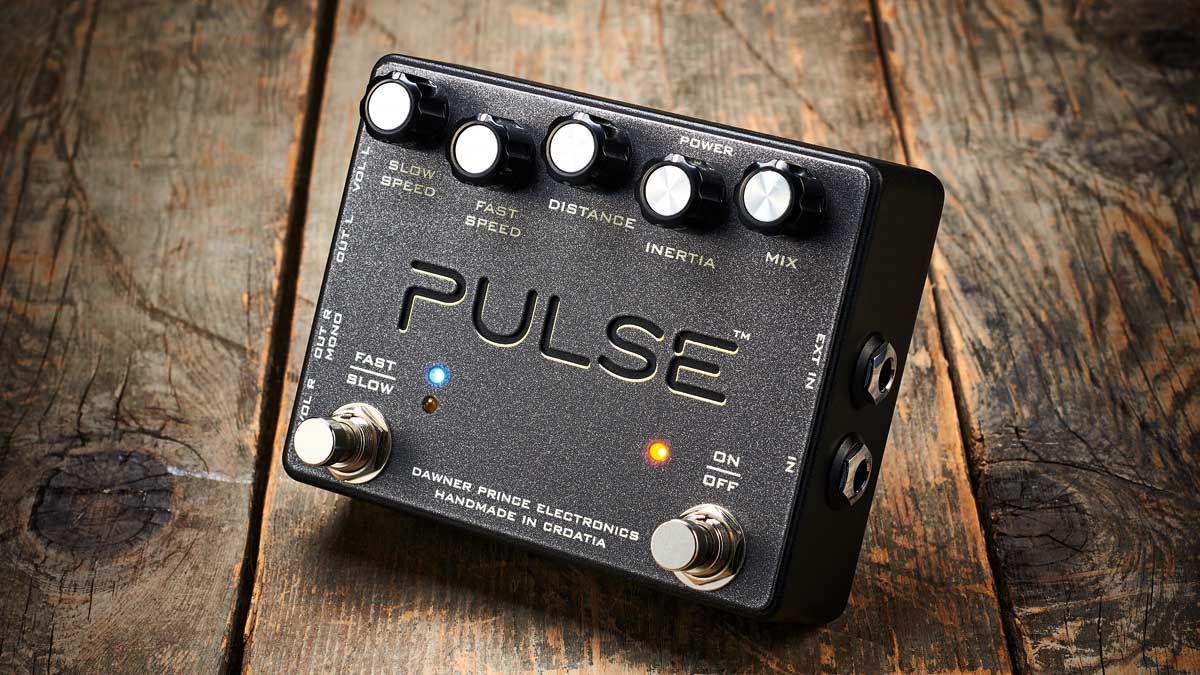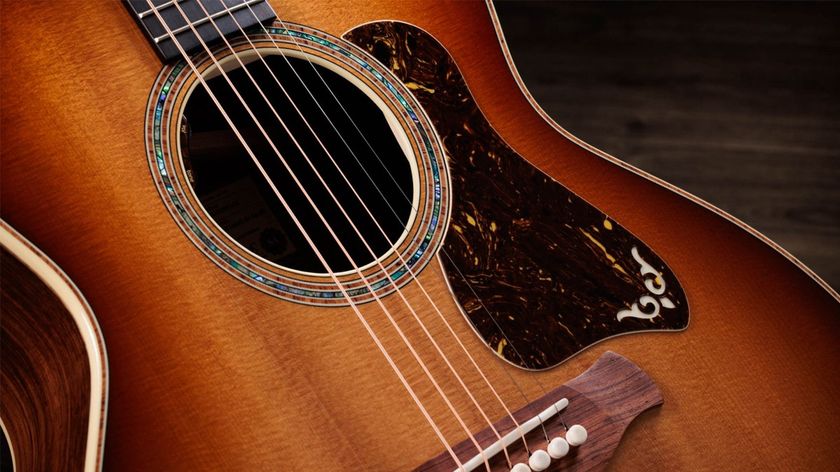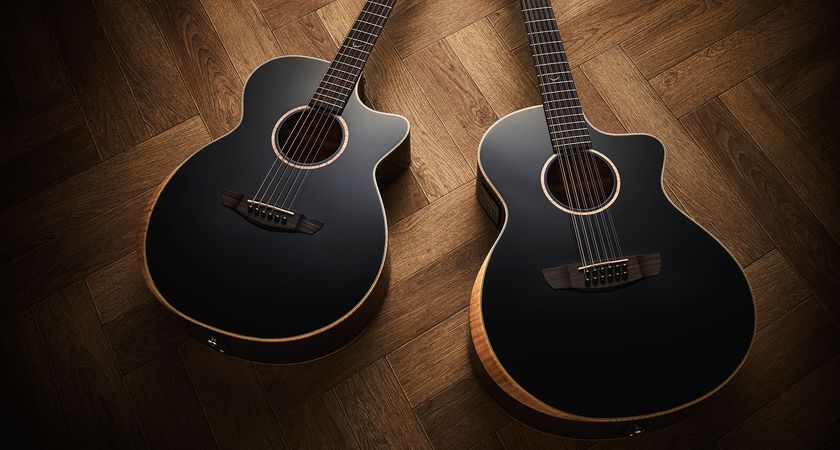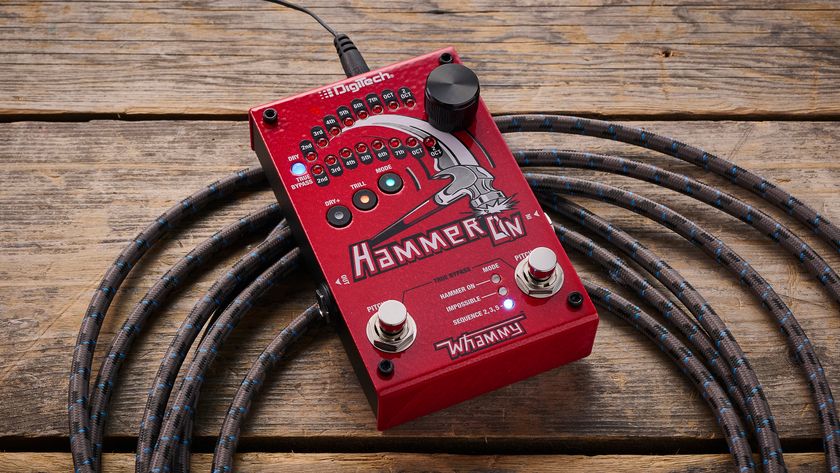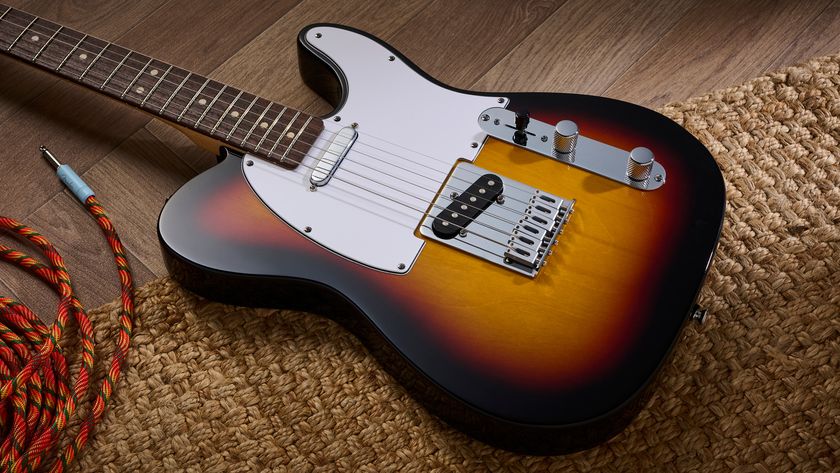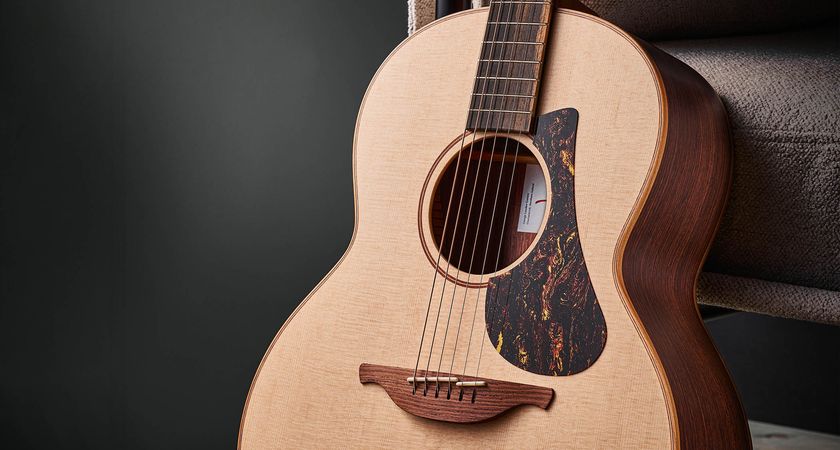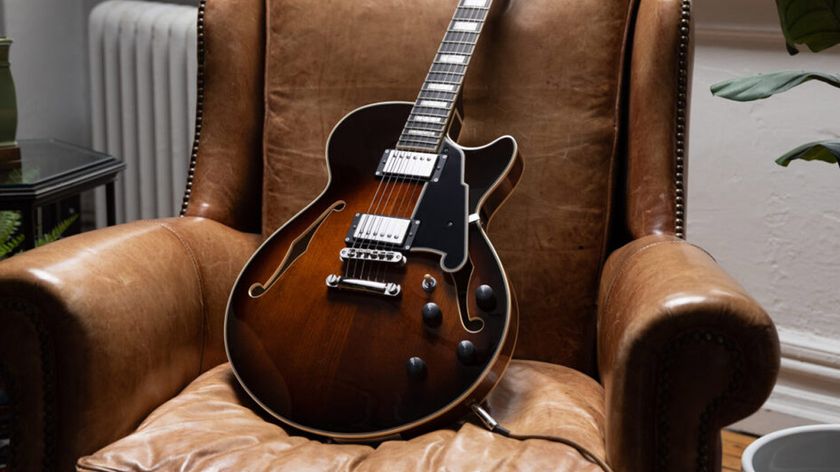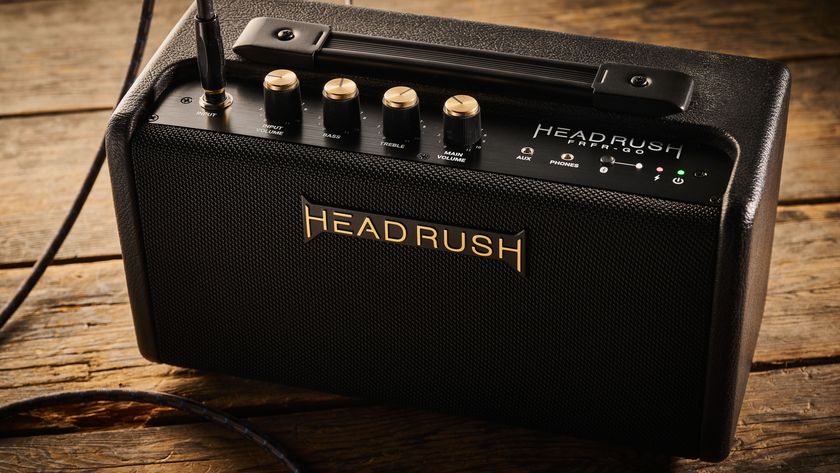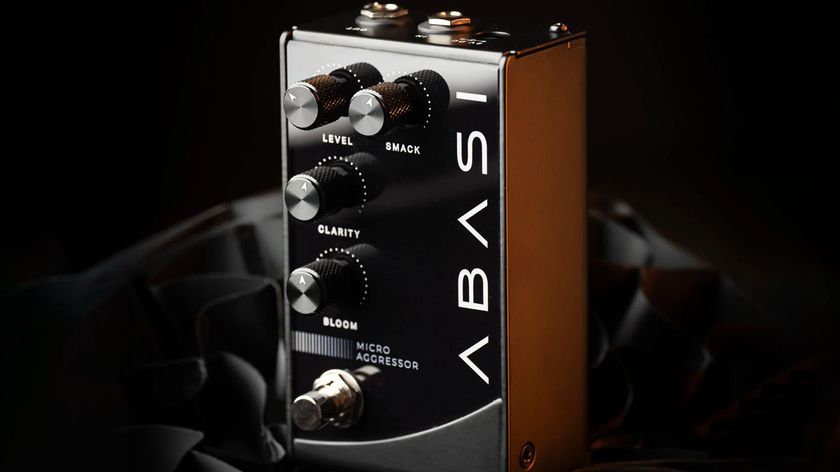Guitar World Verdict
You don't have to be a David Gilmour fan to be inspired by the Pulse. A deluxe rotary speaker emulator, it might well be the missing piece in the jigsaw – an elusive effect, beyond tremolo, beyond chorus – to complete your sound.
Pros
- +
Compact size.
- +
Sound quality.
- +
Variable slow and fast speeds.
- +
Speed switching.
- +
Expression pedal control.
- +
Dry/wet mix control.
Cons
- -
Nothing.
You can trust Guitar World
We’ve all heard the name Leslie used as a generic term for a rotary speaker, but although that company was the original inventor and manufacturer, several brands have produced rotary speakers over the years.
The Fender Vibratone is well known to guitarists, but how many know that arch rival Gibson also got in on the act with the Maestro Rover RO-1?
Launched in 1972 and looking very space-age in its silver circular housing, the now extremely rare Rover was a much smaller and lighter proposition than its rivals.
The Pulse does a really good job of recreating the multi-dimensional sound of a rotary speaker in action, especially if you can run it in stereo
It featured a built-in 35-watt amp feeding a six-inch rotating speaker and had fully variable speed controlled by a foot pedal moving between slow and fast speeds set by the user.
A notable Rover user is David Gilmour. He’s used Leslie and Yamaha rotary speakers at various times, but he employed a Rover for the recording of The Division Bell.
Furthermore, to recreate that album’s sound on stage, Gilmour got his techs to make several custom cabinets, called Doppolas, based on the Rover six-inch rotating speaker design but with more power.
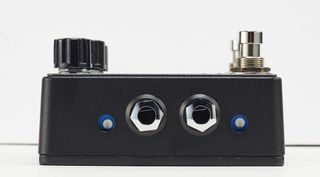
And it’s with that little bit of history that we introduce Dawner Prince’s Pulse, a pedal taking its inspiration from those Rover and Doppola sounds. Taking a mono guitar signal and offering mono or stereo output, the Pulse has a pretty straightforward user interface.
Besides the standard bypass switch, you get a second footswitch that toggles between fast and slow speeds; acceleration or deceleration when switching from one speed to the next is set by the Inertia knob.
Those speeds are set by the Slow and Fast knobs, which respectively run from 0.4 to four and from four to eight revolutions per second, so you can have two speeds that are quite close together.
Alternatively, you can do the speed switching with a footswitch plugged into the external input, but you may prefer an expression pedal for foot control over the whole speed range or a chosen part of it.
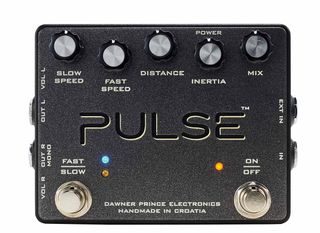
Sounds
Since the pedal is designed to recreate the sound of a mic’d up rotary cabinet it has a knob to set the distance between the virtual microphones and the revolving speaker cabinet, offering a very practical degree of sonic variation.
Turning it up brings the ‘mics’ closer for a less diffuse and more intense effect, with the top-end increasing in stridency towards the far end of travel.
The final knob is a Mix knob that runs from 100 per cent dry sound to 100 per cent wet, allowing you to blend the rotary speaker effect in proportion with your normal tone, from an intriguing dusting of modulation through to the full effect.
This is arguably the most important control on the front panel for anyone wanting to approximate certain Gilmour tones, as his onstage setup utilises the Doppolas in tandem with stationary cabs for a hybrid blend.
The Pulse does a really good job of recreating the multi-dimensional sound of a rotary speaker in action, especially if you can run it in stereo where you get a real sense of motion and spaciousness.
That said, it also does the business in a standard mono effects chain and can deliver classy modulation over a whole range, from the deep phasey swirl of the slower speeds to the more chorused tremolo-like warble at the fastest. It takes dirt really well, too, and sounds great with a drive pedal in front of it, emphasising the effect.
We didn’t have a real RO-1 to compare it to (and certainly not a Doppola!), but it does Pink Floyd-style rotary sounds very nicely. There are some quality dedicated rotary speaker pedals available on the market and this holds its own alongside them, offering sounds in the same ballpark but with its own airy flavour that works brilliantly with guitar tone.
Verdict
As with the Echorec-emulating Boonar pedal that came before the Pulse, Dawner Prince deserves praise for conceiving this pedal on two counts: first for bringing back the sound of some almost-forgotten gear, as well as adding another piece to the jigsaw of the Gilmour sound.
Whether you’re an avid Gilmour fan or not, this pedal has plenty going for it: compact and with comprehensive fast/slow switching arrangements, it’s a great pedalboard choice for anyone who wants a dedicated rotary speaker emulator.
Specs
- PRICE: $339 / £319
- ORIGIN: Croatia
- TYPE: Revolving speaker emulator
- FEATURES: True bypass
- CONTROLS: Slow Speed, Fast Speed, Distance, Inertia, Mix, Volume L trimmer, Volume R Trimmer, Fast/Slow speed footswitch, Bypass footswitch
- CONNECTIONS: Standard input, standard outputs L & R, Ext In
- POWER: 9V DC adaptor, 70mA
- DIMENSIONS: 124 (w) x 94 (d) x 51mm (h)
- CONTACT: Dawner Prince
Trevor Curwen has played guitar for several decades – he's also mimed it on the UK's Top of the Pops. Much of his working life, though, has been spent behind the mixing desk, during which time he has built up a solid collection of the guitars, amps and pedals needed to cover just about any studio session. He writes pedal reviews for Guitarist and has contributed to Total Guitar, MusicRadar and Future Music among others.

“If your taste in fuzz leans toward the extreme, Gary has the personality to remain your lifelong best friend”: EarthQuaker Devices Gary review

“All of a sudden, my occasional-use pedal has gone to something that can live on the ’board”: That Pedal Show’s Mick Taylor sparks inspired change that sees the Argo Boost Deluxe serve octave fuzz and boost tones in one unit
